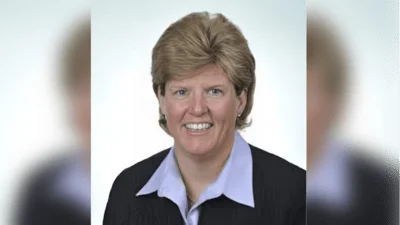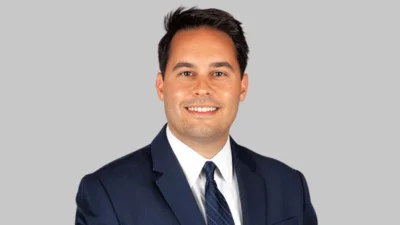Property valuation in Illinois, especially in Chicago, must become more uniformly closer to reality before school funding will be more equitably distributed, Naperville Township's longtime assessor told the DuPage Policy Journal.
"Valuing real estate isn't partisan," Warren Dixon III said. "It can be done in a much more fair, equitable and transparent way through technology advancements, restructuring of the current 900 assessment jurisdictions and raising the qualifications, ethics and standards of assessors."
To that end, Dixon said he assisted a state representative pen legislation for more equitable assessment in Illinois, but the bill was derailed by Democrats.

Naperville Township Assessor Warren Dixon III
Dixon has been Naperville Township's assessor since 1985 and, after the withdrawal of Gary Vician, ran unopposed for re-election in April.
Unequal property valuation and inequitable school funding, especially downstate, have gone hand-in-hand for decades, Dixon said. Illinois' Republican Gov. Bruce Rauner signed the new state school funding formula into law in late August, calling it "a good compromise bill that moves the state forward and makes sure that every child in the state of Illinois has an equal chance at a great education."
All school districts were guaranteed at least the same amount of aid they got last year, in large part due to the hold-harmless provision of the legislation. However, educators have claimed that the provision perpetuates the inequities in education funding that have existed for decades, leaving the neediest schools still waiting for a solution.
"The foundational pillar of the new school funding formula is EAV (equalized assessed value)," Dixon said. "The funding formula places school districts in Tier 1, Tier 2, Tier 3, Tier 4 position based on these local available resources, or EAV, with Tier 1 schools receiving the majority of state funding. That is why accurate assessed valuation is so very important."
It also is why unequal valuation is a problem in Illinois, Dixon said.
"We know the Chicago Loop commercial properties are extremely undervalued," Dixon said.
As an example, Dixon pointed to the Willis Tower, formerly Sears Tower, which he said sold in March 2015 for $1.3 billion, but the Cook County assessor's office valued it at only $579 million, or 42 percent of its fair market value (FMV).
"I could list another 20-plus high profile sales that on average only reach 45 percent of FMV also," he said. "Combine that with one in four properties in Chicago being located in a TIF district, where the TIF increment isn't included in local available resources either, and you have a double whammy of severe understatement of the true available local resources and the ability to pay."
Despite claims otherwise, "Chicago isn't broke," Dixon said.
"They have record growth, with 52 cranes in the air, No. 1 in the U.S., and 10 individual projects all over $1billion currently under construction or in the works," he said.
Illinois funds Chicago Public Schools (CPS) at $2.1 billion annually because of the city's Tier 1 position, Dixon said.
"If properties were correctly valued and/or assessed by the Cook County assessor’s office, CPS would move to a Tier 4 funding position, and a majority of the $2.1 billion would be returned to all the other districts in the state, which would be a massive property tax reduction for almost all Illinois property owners," Dixon said.
A comparison with DuPage County is startling, he said.
"The difference from DuPage is that we are very close to market value, with only 2 percent of parcels appealed annually, versus Cook County, which is extremely inequitable, with 22 percent of parcels appealed annually," Dixon said.
Dixon said he has joined forces with Rep. Jeanne Ives (R-Wheaton) to try to address property valuation in Illinois.
"Rep. Jeanne Ives and myself authored HJR69, the 'Taskforce on Modernization and Reform of the Illinois Assessment System,'" he said. "It was a well-outlined taskforce with 31 bipartisan sponsors."
HJR69 was assigned to the House Revenue and Finance Committee on Oct. 17; no further action has been taken.
"It was never called, and actually on Oct. 24 in veto session, (it was) stolen by Democrat leadership verbatim so they could stop the conversation," Dixon said.






 Alerts Sign-up
Alerts Sign-up